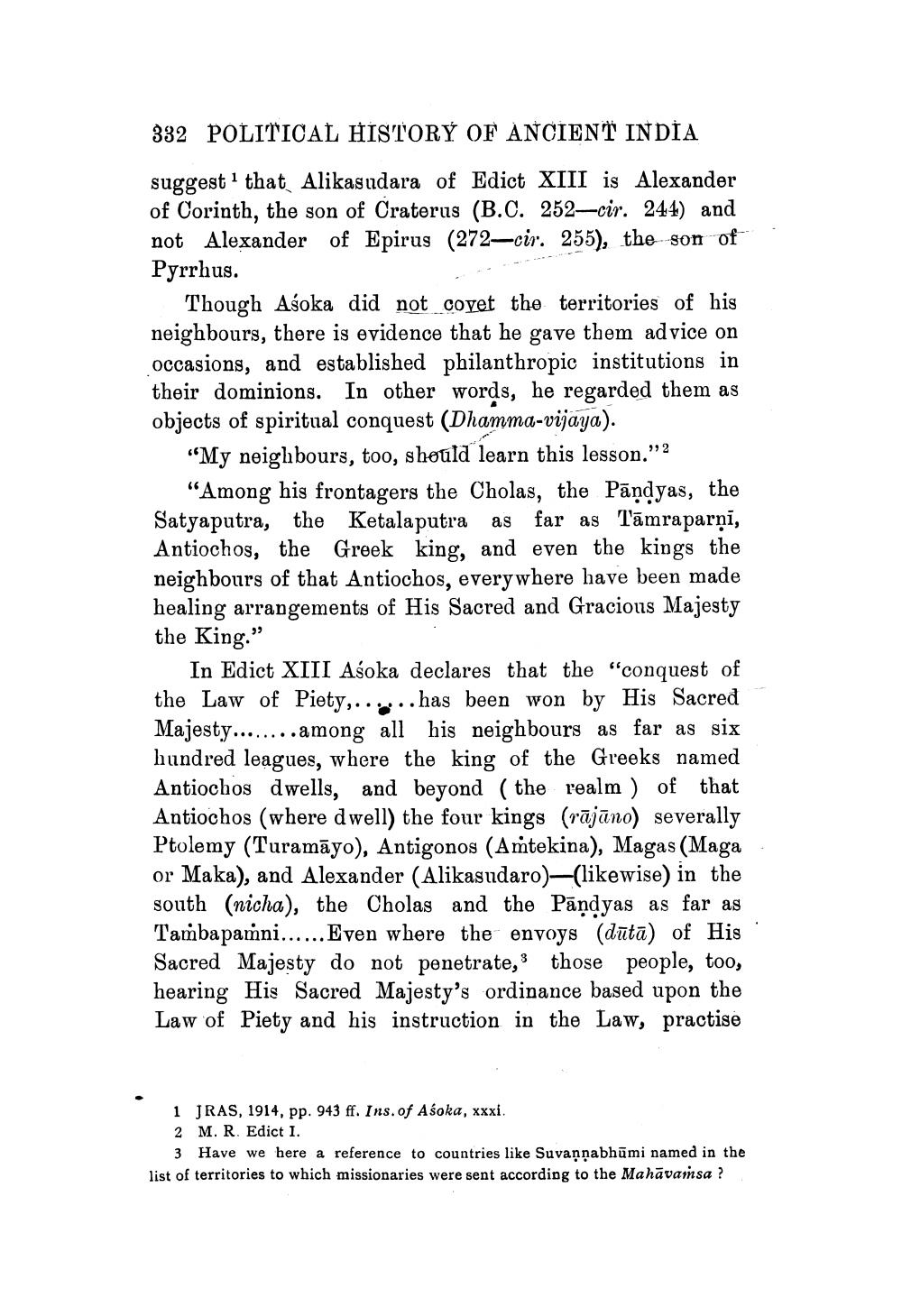________________
332 POLITICAL HISTORY OF ANCIENT INDİA suggest 1 that Alikas udara of Edict XIII is Alexander of Corinth, the son of Craterus (B.C. 252–cir. 244) and not Alexander of Epirus (272-cir. 255), the son of Pyrrhus.
Though Asoka did not covet the territories of his neighbours, there is evidence that he gave them advice on occasions, and established philanthropic institutions in their dominions. In other words, he regarded them as objects of spiritual conquest (Dhamma-vijaya).
"My neighbours, too, should learn this lesson."?
"Among his frontagers the Cholas, the Pāņdyas, the Satyaputra, the Ketalaputra as far as Tāmraparṇī, Antiochos, the Greek king, and even the kings the neighbours of that Antiochos, everywhere have been made healing arrangements of His Sacred and Gracious Majesty the King."
In Edict XIII Asoka declares that the "conquest of the Law of Piety,...... has been won by His Sacred Majesty........ among all his neighbours as far as six hundred leagues, where the king of the Greeks named Antiochos dwells, and beyond (the realm ) of that Antiochos (where dwell) the four kings (rājāno) severally Ptolemy (Turamāyo), Antigonos (Amtekina), Magas (Maga or Maka), and Alexander (Alikasudaro)-(likewise) in the south (nicha), the Cholas and the Pāņdyas as far as Tambapamni...... Even where the envoys (dūtā) of His Sacred Majesty do not penetrate, those people, too, hearing His Sacred Majesty's ordinance based upon the Law of Piety and his instruction in the Law, practise
1 JRAS, 1914, pp. 943 ff. Ins.of Asoka, xxxi. 2 M. R. Edict I.
3 Have we here a reference to countries like Suvannabhūmi named in the list of territories to which missionaries were sent according to the Mahāvansa ?




